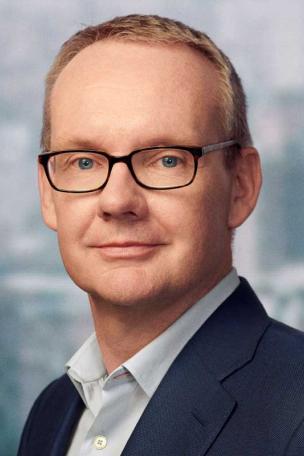NB: What led to the recent prioritization of DE&I across the industry?
WK: There's been a big racial awakening and employees are calling out inequalities. But for me, I feel proud to have been working for an organization that focused on inclusion long before the murder of George Floyd.
For example, in 2018, we worked with an organization called Caerus Executive who came in and held a mirror up to our organization and they pointed out some ugly truths. Careus Executive gave a number of recommendations to address how Black, Asian and minority Ethnic employees were feeling. Sustainable change happens slowly over a period of years and we just rolled out last year the first U.K. Black, Asian, Minority Ethnic Talent Sponsorship program, where we paired a senior leader with a person from a Black, Asian, Minority Ethnic background. The sponsee and Sponsor worked on a year-long project.
This was in partnership with Learning and Development. What I found amazing about the process was the employees who didn't get on the sponsorship program were so humble and grateful that as an organization we were running such a program, they felt proud to be part of ViacomCBS. That is testimony to the employees that we have, although they didn't get that opportunity they were still happy to be working for an organization that was pushing out programming to address representation. For me, that also makes me proud that I can be part of an organization that listens to employees and takes action to make a change. I think that is testimony to Marva's leadership, running listening sessions throughout the business giving employees a voice that has a platform to be heard.
Inclusion takes time, people can be frustrated and think, "Oh, we're not moving the dial." But, when you look at the data, the data is telling us we're going in the right direction. Nothing happens overnight and you can't always please everyone, but when you know you've got leaders who fundamentally care and want to make a difference, that's really important.
NB: What are some of the issues your team is prioritizing?
WK: From a U.K. perspective, we have a lot of challenges because we are heavily regulated and we have to answer to organizations such as Ofcom and the Government Gender Pay Gap. When Ofcom is asking you about your data and about inclusion within your organization, you have to provide the information. We have to provide data year-on-year, it is an opportunity to see if we're going forward or if we're going backward. I see it as a checkpoint to constantly evaluate how we're doing.
I think we have come a long way. Marva's tagline is: “Ours is a shared journey.” We are being really transparent with the data that we have and I believe employees value this transparency.
There is an opportunity to see if we are making a difference and having a department such as the Office of Global Inclusion ensures diversity, equity, and inclusion are a business priority. We partner with HR and Communications and other department that help us move needle and make the various businesses smarter.
The data has improved year-on-year and that's because we're really intentional in creating programming to address any shortcomings that we see, or any skews within the data. Working with HR and Talent Acquisitions allows us to come up with action plans and create partnerships that truly make a difference. I think that's when you can see that things are changing, when the data is going in the right direction.
NB: Can you tell me about Inclusion Week?
WK: Inclusion Week is the opportunity for us to lean in and understand the value of creating a culture that's inclusive for all. It's an opportunity for us to bring in thought leaders. It's an opportunity for employees to learn , to be inspired, and to hear from talent. It's a tentpole moment for us to really promote the value of difference and the value of creating inclusive cultures. Listen together, learn together, belong together is the theme this year.
NB: What are some of the highlights you’ve experienced during previous Inclusion Weeks?
WK: The first Inclusion Week, one of the highlights for me was the Kingdom Choir (British gospel choir invited to perform at the wedding of Prince Harry and Meghan Markle). When you've got all the different voices of a choir coming together to make a beautiful sound , it affects you. I always say, "Inclusion is a feeling, you feel included or you don't feel included." So when you have an event that immerses you in a feeling, it's so powerful that you go, "Aaarrr.” That is a moment that I will never forget. Seeing everybody in the atrium at Hawley Crescent, standing, sitting, dancing, and clapping, that is togetherness and that is what we want, isn't it? To foster a culture where everybody feels that they are part of something and we are in it together.





